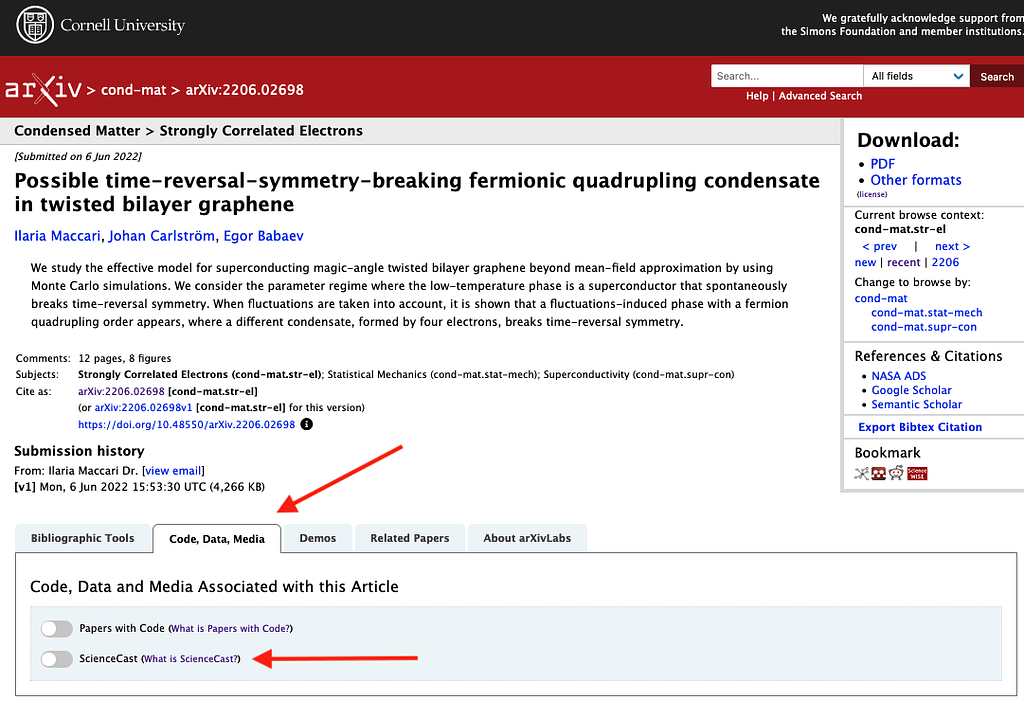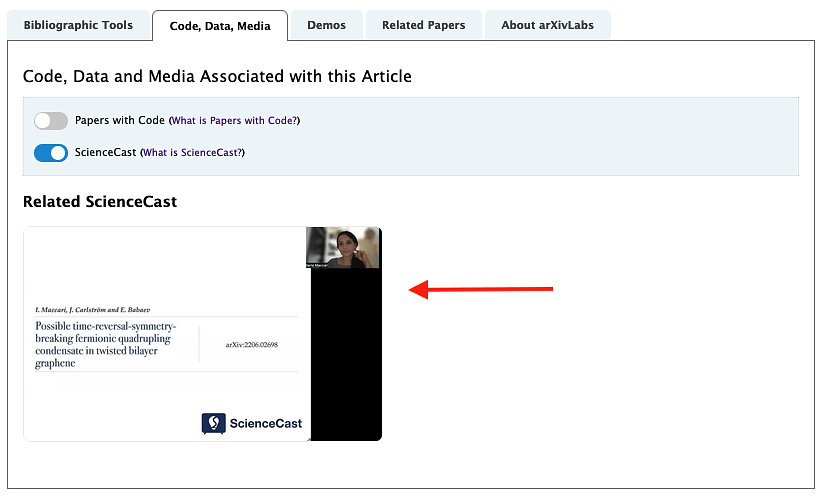ScienceCast and bioRxiv Join Forces to Improve Accessibility of Scientific Research Through Advanced AI Tools
November, 8th, 2023 — In an exciting partnership designed to bridge the gap between complex scientific information and a broad readership, ScienceCast and bioRxiv are proud to announce a collaborative initiative that redefines how scientific papers are consumed and understood by different audiences.
The collaboration uses an innovative application of ScienceCast’s AI technology to generate nuanced summaries of scientific studies posted on bioRxiv. The revolutionary aspect is the production of three distinct summaries tailored to different levels of expertise: one for scientific peers and experts in the field, one for researchers from other domains, and a more simplified version for the lay public. These summaries offer comprehensive insights into the research drawn directly from entire papers—not just the abstracts.
Further enhancing accessibility and reflecting evolving consumption preferences, ScienceCast will also produce audio versions of these summaries. These will be available on ScienceCast's digital platform, sciencecast.org, allowing users to engage with the content on-the-go, making scientific knowledge more accessible than ever before.
“Scientists are writing papers at an unprecedented rate. For instance, there are half-million papers on COVID-19 that would take an individual approximately 150 years to read,” said Victor Galitski, the CTO of ScienceCast. “Clearly new models of disseminating, refereeing and consuming research are needed.”
“Our partnership with bioRxiv marks the beginning of this journey as a part of the Open Science Movement. The new tool, developed by the ScienceCast team in collaboration with AI expert Yacine Brahimi, will not only make information more accessible, it will also tailor it to the needs of specific readers, including science reporters, educators, policymakers, health professionals, and students.”
The current release is just the first step. ScienceCast plans to use AI to make scientific information ‘interactive’. One of the most anticipated developments is a tool that permits users to interact with the papers dynamically and 'question' the document directly. The AI will use data and inferences from the paper to provide immediate answers and build ontology and knowledge graphs linking seemingly unrelated scientific data.
“AI has the potential to make a huge impact on scholarly communication, and it is particularly good at summarizing complex scientific information”, said co-founder of bioRxiv Richard Sever. “We’re delighted to partner with ScienceCast to provide summaries of bioRxiv papers appropriate for different levels of reader expertise.”
“ScienceCast’s new approach to discoverability and accessibility using generative AI is an exciting development, and we are delighted to see an arXiv Labs member provide enhanced interoperability with bioRxiv and connect the science ecosystem”, said arXiv Scientific Director Steinn Sigurðsson.
The collaboration represents a significant stride towards inclusivity and accessibility in the scientific community, providing various audiences with the tools they need to engage with and understand complex research better. As science continues to advance, partnerships like this ensure that knowledge dissemination evolves in tandem, reaching more curious minds wherever they are. For additional information, future updates, and to experience this revolutionary approach to scientific literature, visit http://sciencecast.org or http://biorxiv.org.

